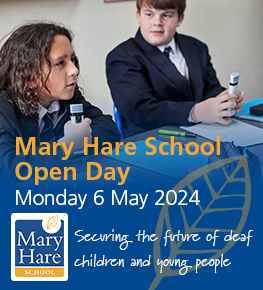Policy on inclusion
Please note: This content has been archived and therefore may no longer be up-to-date or relevant. It is kept online for your convenience. If you have any questions, please contact us.
BATOD was asked to contribute its views on inclusion for the UN Diability Convention. It is a response to the discussion about how to ensure universal human rights to education for disabled pupils:
“The British Association of Teachers of the Deaf (BATOD) is the only professional body which represents the interests of Teachers of the Deaf (ToDs) in the United Kingdom. Such teachers work in a range of provision; for example, homes, nurseries, mainstream schools, units/resource bases, special schools for the deaf (non-maintained, independent and LEA), other special schools and as part of cochlear implant teams. There is, therefore, a range of opinion as to what ‘inclusive’ education means. We believe however, that the majority of our members would support the view that ‘inclusion’ is not a placement or a state but a process.
We are of the opinion that there is a huge tension between policy, i.e. ‘inclusion’ and reality. Class size, target setting, whole class teaching, and streaming/banding make it very difficult for all children with severe communication difficulties to participate independently in mainstream education. We also think that there is a great deal of inconsistency in the definition and understanding of ‘inclusion’, as well as a lack of empirical data in support of, or otherwise, the inclusive movement. In some cases, despite excellent support, acoustic treatment to classrooms, and a supportive mainstream setting, deaf students still experience feelings of ‘internal exclusion’.
We believe it is the right of every child to have an effective education but also consider that this can be met through a variety of placements (as outlined above). Whilst our aim is to try to ensure that each deaf child eventually becomes employable, and a valued and contributing member of society, we think that because of the range of needs in the ‘deaf population’ certain environments will be more compatible to effective learning than others.
As an example, a child whose first language is British Sign Language (BSL) will nearly always require a community where BSL is the prime method of communication. In our view, such a child will not develop his/her first language sufficiently if s/he is the only one in a school with an extensive BSL vocabulary and grammar. Moreover, the child will almost always require access to the curriculum through an intermediary and therefore not become a fully independent learner.
Having said that, Teachers of the Deaf have, for many years, been in the vanguard of the integration/inclusion movement and have continually demonstrated that many deaf children are very capable of successfully taking their place in mainstream education. We have made full use of modern technology, which has enabled many more deaf children to gain access to spoken language but up-to-the-minute hearing aids and other equipment do not always lead to appropriate or satisfactory communication. There is no doubt that improved funding to specialist Services of appropriately qualified Teachers of the Deaf would enable essential equipment to be purchased and maintained, as well as providing more staff to deal with very high caseloads. In many cases, this may lead to higher standards and improved outcomes for some deaf students.
So, whilst we would endeavour to support a child in a mainstream setting, if that was the wish of his/her parents, Teachers of the Deaf have a duty to inform the LEA of the education provision required by that child. It is our experience that many placements in special schools for deaf children are made in line with requests from parents. We do not believe that education in a school for deaf children, either day or residential, is necessarily contrary to the aims of inclusion as, and this is in line with the Salamanca agreement, some deaf children require special school or resource base education in order to facilitate their eventual inclusion in society after-school.
In conclusion, we consider that decisions need to be made on exactly what individual children’s needs are, and how they can be met most effectively.
BATOD NEC, June 2005



